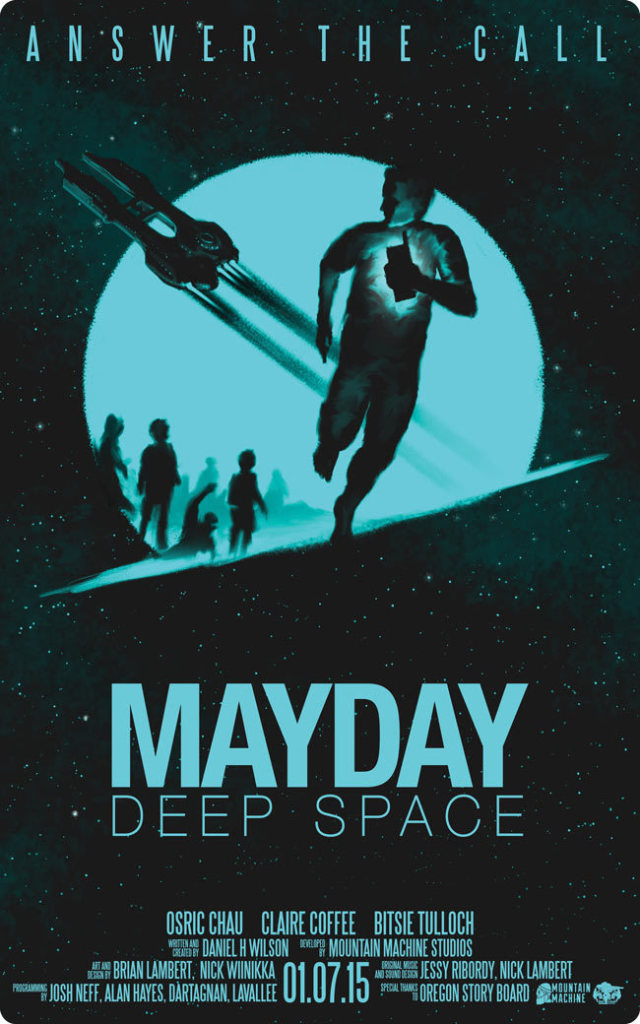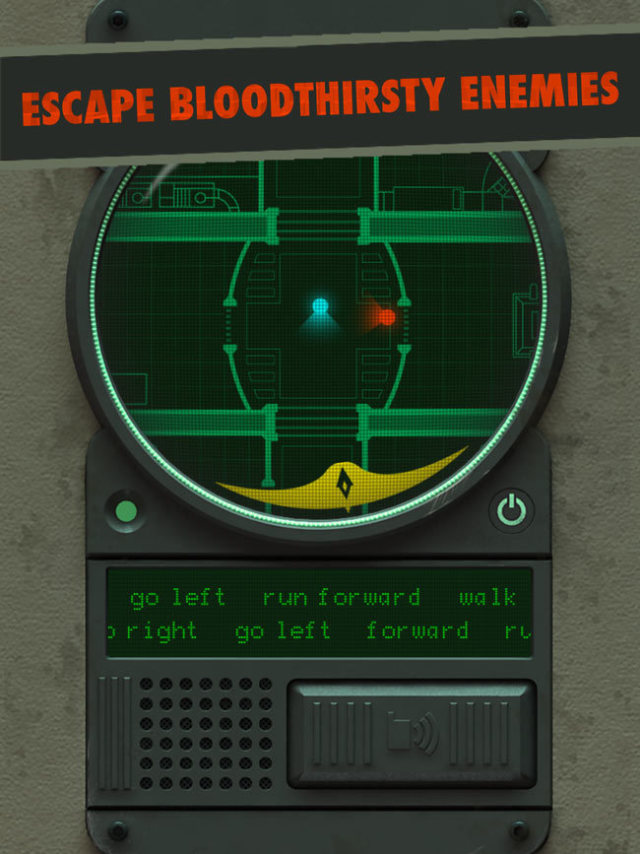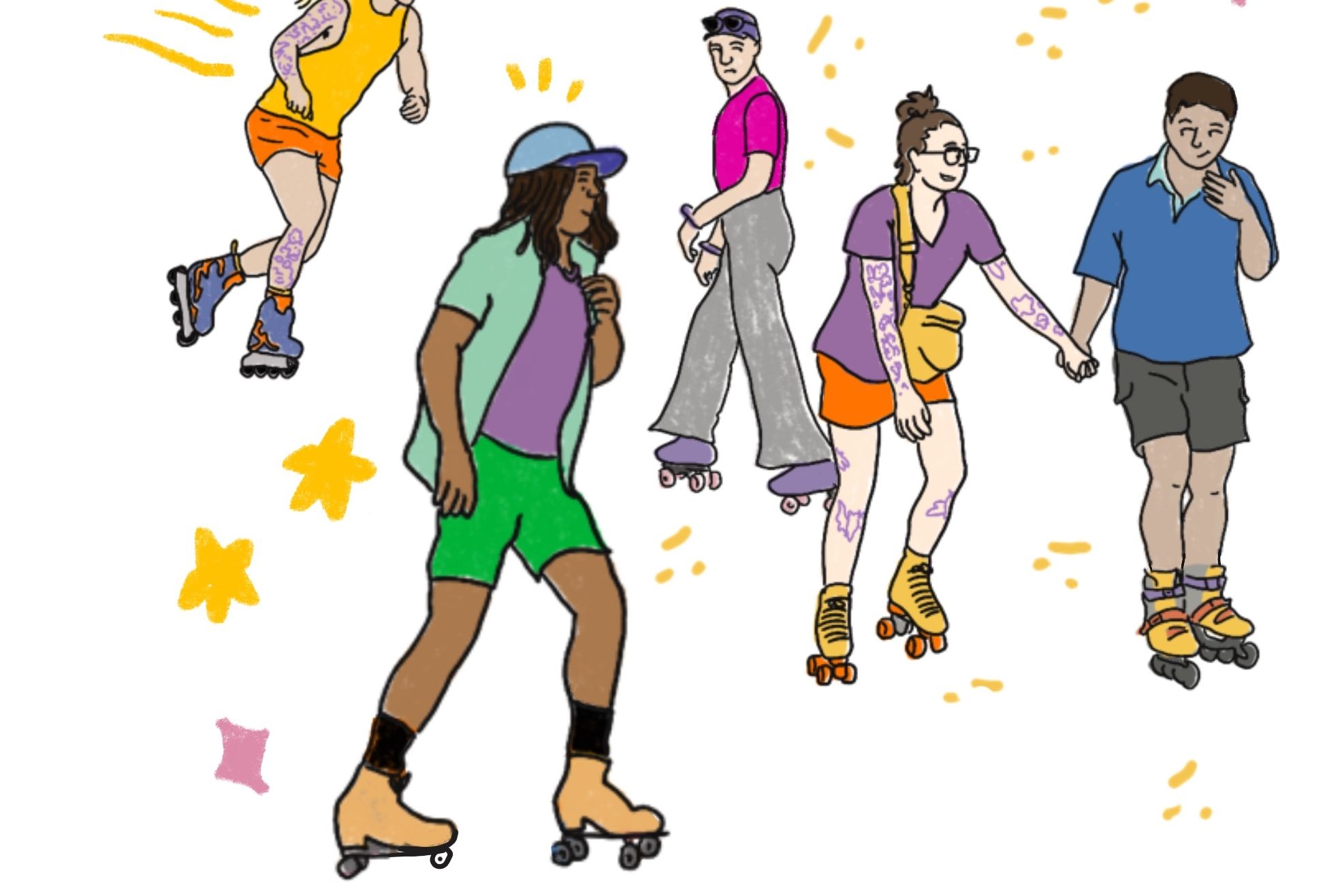Zombies in Space: Daniel Wilson’s Killer Sci-Fi Game App

After two years of development, what he dubs a “playable sci-fi story app” is finally here: Mayday: Deep Space, and it stands to shake up the app gaming market. The plot might at first appear basic—you receive a mayday call from someone stranded on a space ship; the gameplay, however, is anything but. Instead of the standard first-person vantage with button controls, in Mayday you guide the stranger through his ship using voice commands, like you’re actually the captain of a distant ship trying to rescue him.
In order to create the game, Wilson partnered with the local tech start-up Mountain Machine and enlisted a number of the region’s TV actors, including Grimm regulars Bitsie Tulloch and Claire Coffee (they frequent his favorite NW coffee shop) and Osric Chau of the TV show Supernatural and Vancouver, BC.
The game is available today on iTunes. We checked in with Wilson to learn more about creating a sci-fi app from scratch, writing a new screenplay for Brad Pitts' production company, and the status of Steven Spielberg filming Robopocalypse.

On the Town: To start, give us a basic rundown of the game.
Daniel H. Wilson: It runs on an iPhone or iPad, and the idea is that you literally answer a mayday call from a survivor who’s stranded on a derelict spaceship. Once you speak to the character, you’re given access to the ships diagnostics so you can see blueprints and the security system. From there on you guide the survivor with voice directions, and as he walks thru the ship and avoids these virus-infected crew members—essentially they’re zombies—you start to unravel the mystery of what happened.
There are two points where you can make decisions that will affect the outcome of the game, so there are four different endings. And there are Easter eggs spread throughout the environment, so if you explore really thoroughly you get rewarded with snippets of story that wouldn’t be revealed otherwise.
Where did the idea come from?
I’ve had this huge version of this game in my head for years and years. I was inspired by that scene in Aliens where the commander is in the armored personnel carrier giving commands to the infantry who are out there hunting this alien. For each soldier, he can see their physiological signs and what they’re seeing through their shoulder-mounted cameras.
Of course everything goes wrong really fast, but I always thought that would be a really fun game. This partnership between you and the other characters is a neat dynamic to explore.
I got to explore the game in depth at the Portland Incubator Experiment, PIE. I went there for a one-day workshop and sketched this out in detail that made it real for me and also introduced me to a community of people who could actually program it.
Oregon Story Board's inaugural class of five start-ups, including Mountain Machine, is doing a demo day on Friday, Jan 6, from 2–4pm at the Hollywood Theater.You ended up working with a team through the new state-sponsored incubator Oregon Story Board, right?
I had basically pitched this idea to a buddy and said I was programming it myself. I thought it would be a fun side project, like whatever your dad does when he disappears into the garage—I thought this would be my version of building boats in glass jars. I do actually have a computer science degree and there was a point in my life where I could do something like this, but I discovered that point is over.
My friend introduced me to Nick Lambert at Mountain Machine. So I hired a Mountain Machine to do a proof of concept, because I thought it might be really frustrating to use speech recognition to get somebody to move around in an environment—maybe the technology wasn’t up to the challenge.

And man, they turned in what was essentially a first level, and it was fun. I cared about the little guy I was giving commands to. The connection was there.
We moved on to doing the full game. I don’t have a ton of money to throw at video games, and Mountain Machine is just starting out, so they would stop and go work construction for three weeks. It was high quality work, but it was taking a long time.
That’s what Oregon Story Board provided. Mountain Machine used proof of concept to show how cool this project was, and they were really lucky to get office space and funding from Oregon Story Board, so they were able to devote their full resources to get it done and release it to the public.
Is it the first game to use voice recognition?
I looked, and I’m working with a local marketing company called Extrema, and they had their expert do a competitive search to find similar games, but they found nothing like this. As far as I know, this game totally unique, and I kind of can’t believe that.
You said you also make it so the story unfolds over the course of the game. That’s something used for full-on video games, but it also seems unusual for app games.
This game is a hybrid—even in the app store, I have it in the book section and also in the game section. I call it a story that you can play. The reason you play it is not to collect points; the reason you play it is to hear the story, and in that way it’s like a book.
But you also have this video game mechanic where you’re talking to the character and guiding him. In my mind the whole reason for that speech recognition mechanic is to try to build an intimate relationship between the player and the character. And my hypothesis was that if you talk to him, you might care more about him rather than if you just controlled him with a joystick.
He doesn’t always do everything you say either. He’s his own man.
What else are you working on?
I am writing a weekly comic book series for DC called Earth 2: World’s End, and I’m writing a graphic novel for DC called Quarantine Zone, and I’m also writing a movie for Lion’s Gate called Alpha, based on a story I cooked up.
I got way into Shackleton and all the Antartic explorers. When you combine that with my science fiction instincts, it became this really cool sci-fi survival tale in the arctic. I’m collaborating with Plan B, Brad Pitts’ production company, and a director named Anthony Scott Burns, who’s a visual effects specialist. I’m writing that for the first part of the year. It would be great if it was green lit and we were able to go into production. I’ve never had that happen yet, but I always remain hopeful.
I was going to ask, is there any news on the status of Steven Spielberg filming Robopocalypse? [Spielberg optioned the book before it was even published, but then he sent it back to the drawing board in 2013.]
The project is definitely still active. Right now Spielberg is shooting The Big Friendly Giant. It’s a real question about what he’s going to shoot next. I think there’s a chance it will be Robopocalypse.




